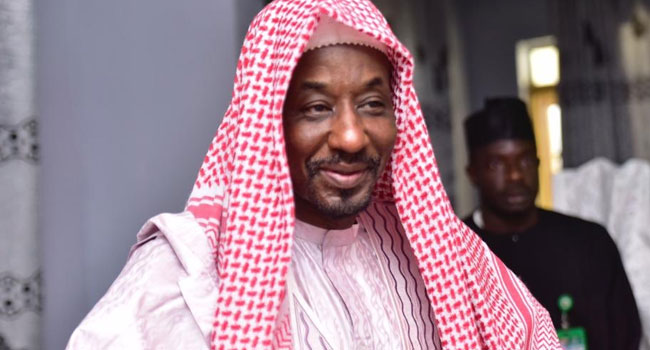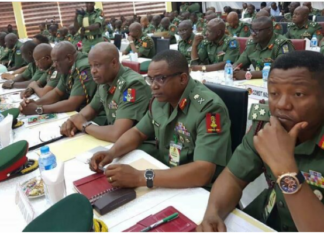By Uju Okeahialam
In the last few weeks, we woke to the news of the dethronement of Muhammadu Sanusi II, as the emir of the ancient city of Kano. The news had it that a team of the Police, Soldiers, and officers of Department of State Services (DSS) facilitated his eviction from the emirate palace.
Although the pronouncement came from the state government, we know that no governor has control or oversight function over these state security apparatus. Therefore, whatever it was, the governor must have convinced the Presidency of the need for the availability of the personnel of these security apparatus to come and effect the order of the state government.
Since these happened, many have speculated on what the scenario portends. Some felt it was an extreme use of political power for the purposes of vendetta. Others think that it served the deposed emir right for his hypocrisy and insubordination to constituted authorities.
There are those on the other hand who have rallied to the defense of the deposed emir as a gadfly in the face of a decadent tradition. There is also the conspiracy theory that his dethronement was a game of the Fulani think-tank to be a mile ahead of other Nigerian nationalities in order to polish Sanusi, as a saleable presidential material for the 2023 elections.
To this, there are no dearth of information about Sanusi’s past, for which people in the South, the Middle Belt, and other non-Muslims are told to beware.
The truth and fallacy of these notwithstanding, I wish to raise some questions, which I think nobody is asking. What authority has the people and government of Kano State to banish the dethroned emir to a place in Nasarawa State? Were the people of that town, or even the state consulted before Sanusi was dumped on them? Did they accept and on what terms?
I know some people will dismiss these questions because the man is now free and in Lagos State, but do not rush to that conclusion yet since it was the court that settled that for him; and because he has friends who could pull the strings. What would have happened if he did not go to court and if he did not have friends in high places who defied the banishment guidelines to visit him, even, less than 48 hours in the game?
The above questions can help us chart the path of modern Nigeria. The Sultanate with its emirate suffragans held sway in many parts of the present-day Northern Nigeria. The literal presumption was that the above system was conquered or suppressed by the British colonialists and subsumed into the present-day Nigerian political arrangement. Yet we know practically that the light of those sovereigns have not waned.
Whether it has helped to move the country forward or backward is not the interest of this piece as there are many commentaries about either position around. The questions of interest in this piece are “Why is it that in a modern democracy of federated states, one state can banish a traditional ruler from its domain to another state without a plebiscite by the people of that state to receive or not receive the banished person? Is Nasarawa a suffragan state of Kano state?
By banishing Sanusi to Nasarawa where he was to remain without job, visitors, etc., it means that his sustenance as well as those of his household will be the responsibility of someone. Who? Kano state or Nasarawa state? Someone would have assured that he kept inside the new space and not jump confinement. Who would have done that?
If that was to be provided by the security apparatus of the country, since no state government has oversight of them, does that mean that the federal government is answerable to the emirate or the Kano state government? If it is the former, does that not mean that the federal government answers to the emirate and by extension the Kano state governor? In addition, if it is the latter, does that not mean that Nasarawa is under the Kano emirate?
May be by providence the banishment failed, but that gives us the widow of opportunity to raise these issues to help shape a dialogue about how we exist or should exist as a federated nation in modern democracy. It is agreed, that it was in the domain of the Kano state government to do what they did and for whatever reason they did it.
Consequently, this piece is not questioning that. The question however to consider is this, “If the emirate system also allows for the banishment of any occupant of the traditional stools after governmental dethronement, should it not be in their territorial domain? What is it that we do not know and how will it be explained to us; lest we continue to deceive ourselves thinking that we are a federated democracy in a modern political sphere?
Uju Okeahialam, PhD, is catholic priest working in Colorado, USA.













